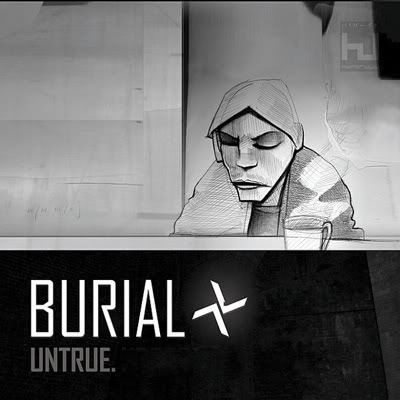
A couple of years ago, I was an active member and contributor to a tight-knit community of online music fans, from which I basically divorced myself once I began working two jobs. I met a lot of very cool people through the boards, both in the States and the UK. Some became friends in real life, especially if I was able to meet them in person. But some—especially those in the UK—sadly remain relegated to that particular time and place in my life.
One such friend—let’s call him BOB—had a successful career in the television industry and a happy family life in London with his beautiful wife, a renowned music journalist and published author in the UK, and their two young children. He was considerably older than I, possibly mid-40s, and yet spectacularly seemed to go clubbing all the time. In fact, he seemed to thrive on it, and indulged in the sort of drug use that a 19-yr-old guy might happily endure. This didn’t seem to slow him down at all; in fact, BOB was sharp, and he had the sort of clearness of vision that qualified him for guru status. (He also seemed to understand boys in clubs, and his gay-friendliness certainly allowed for a better friendship between us.)
One common argument I found online throughout that time, especially amongst British fans of the Fall, was that no “produced” music could possibly be any good. They all favored rootsy, lo-fi rawk, blues, and rockabilly, and were particular enamored by anything American. And as I was rekindling a lot of my interest in electronic music at the time after several years indulging primarily in indie rock, I found myself constantly on the outside of the general consensus. My musical kinship with these folks was limited… except for that with BOB. (And with Jake, who also liked the Hafler Trio, but that is a different story.) BOB was constantly encouraging my exploration into electronic music, and his pedigree as an elite London clubber was certainly helpful. So naturally, with the onslaught of such “pop” artists as Dizzee Rascal, M.I.A., and Lady Sovereign, I had to ask about grime.
But BOB knew I wasn’t invested in hip-hop, and steered me in a different direction. “Grime is okay, but what you really want to check out is dubstep.” I ended up buying all sorts of recommended stuff, from Rephlex’s first Grime compilation featuring MarkOne, Plasticman, and Slaughter Mob (all of which is actually dubstep) to a peculiarly dark and relentless album of slow-motion breakbeats by Vex’d. Good stuff, but a bit esoteric for my tastes at a time when I wasn’t looking for even more interests to set me apart from the rest of the Chicago populace at large.
Fast forward to 2007. London’s Burial releases his second album, Untrue, and quickly becomes the poster child for dubstep. How ironic, considering his baffling anonymity! Yet, once you hear this release, it is completely understandable. Untrue is haunting and soothing and almost unbearably soulful, but before I can explain this, I have to establish that it sounds like house music that has been melted in a microwave. Except for the crisp rhythms produced by the drum tracks, the sounds all smear together, like warm musical chocolate morsels in a giant crispy cookie. I mean, I want to buy the vinyl and set it in the sun for an hour and then play it again and see if it sounds even better.
Ewww… That may be the worst string of sentences I have ever written. Blog writing is certainly liberating, compared to the self-editing one must constantly undergo when writing for someone else’s publication, but it also leads to the production of some really craptastic metaphors.
So back to the soulfulness… like house music, this has innumerable vocal snippets and repeated melodic catchphrases that heighten the emotional impact of the songs, but they are skillfully pitch-shifted so that they warble everything mournfully. Little half-sentiments like “Love you” and “It’s all because you lied” end up sounding like monumental truths or devastating accusations that cut right to the core, not a trait commonly found in dance music.
But the vocals aren’t what make Untrue so great, at least not exclusively. As a concentrated collage of moody sounds and feelings, it perfectly qualifies as a masterpiece of electronic urban soundscape, one that belongs beside the Future Sound of London’s Dead Cities and Massive Attack’s Mezzanine. More importantly, it feels undeniably authentic; though it sounds like nothing that came before it, its ancestry from soul to reggae to drum-and-bass is evident in every note.
All the haters out there will tell you that the hype garnered by this release marks the end of dubstep as an underground phenomenon and that Untrue can’t possibly be an adequate representative of the genre. I certainly won’t argue, because it’s not. But I can only attest to this because Burial’s success has single-handedly caused me to go back and revisit Skream, Kode 9, Distance, MRK1, and other contributors to the sound; isn’t that what any worthwhile genre spearhead is supposed to do? BOB would be so proud.
Listen:

1 comment:
i'm often late to class, so i'm just now getting around to listening to this record. wow. it is beautiful.
and i wouldn't worry about cultivating too many interests that set you apart from the chicago populace-after all, everyone here hates disco and looooves wilco. boo.
Post a Comment